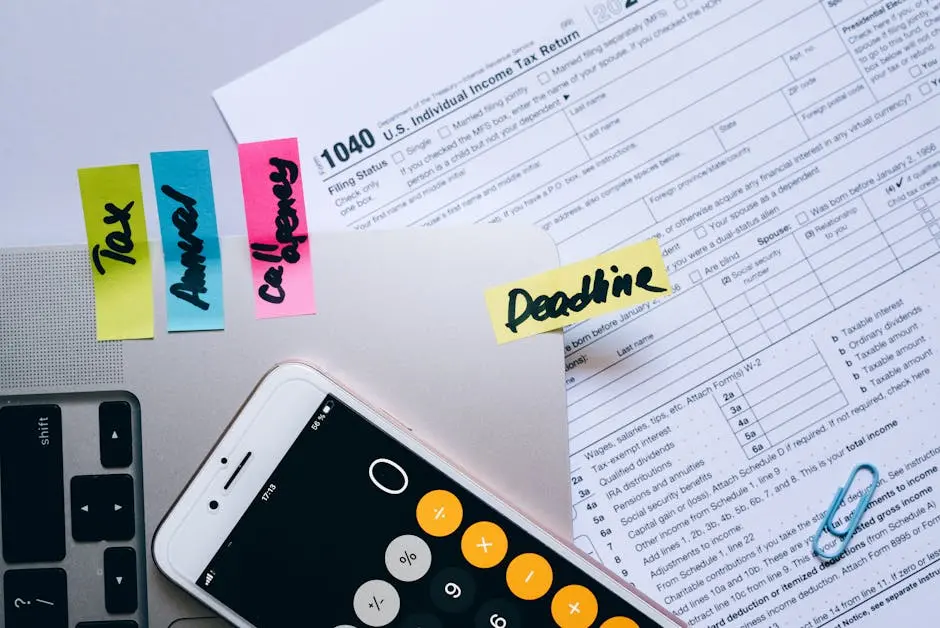Understanding taxation services in the UK can seem daunting, but it doesn’t have to be. This quick guide is here to help you navigate the complexities of taxes with ease. Whether you’re a self-employed individual, a small business owner, or simply looking to understand your obligations better, we’ve got you covered!
Understanding the Tax System in the UK
The UK tax system can be complex, with its various types of taxes and rates. In this section, we’ll break down the essentials you need to know, including income tax, National Insurance, VAT, and more.
At the core of this system is the income tax, which most individuals and businesses must navigate. This tax is progressive, meaning the more you earn, the higher your rate will be. Understanding how these rates scale not only informs you of your obligations but also empowers you to plan your finances strategically.
National Insurance contributions also play a pivotal role in the UK tax system. These contributions fund various state benefits and services, including the NHS and state pensions. As a result, staying abreast of your National Insurance status is not just good practice, but it is essential for securing your entitlements.
Additionally, you may encounter Value Added Tax (VAT), which can complicate matters for businesses selling goods and services. VAT is an indirect tax added to most sales, making it vital for business owners to understand their VAT registration requirements to comply with tax laws effectively.
Identifying Your Tax Obligations
It’s crucial to understand your individual tax obligations, especially if you’re self-employed or running a business. This section will cover how to determine what taxes apply to you and your responsibilities.
For the self-employed, knowing your tax obligations starts with registering as self-employed with HMRC. Once you’ve done this, it’s time to keep accurate records of your income and expenses. This practice will not only simplify your tax reporting but also ensure you don’t miss out on any potential deductions.
If you run a limited company, your tax responsibilities expand further. You’ll need to be aware of Corporation Tax on your company’s profits and the necessity of filing annual accounts and tax returns. Failure to comply can lead to significant penalties, which is why keeping informed is crucial.
Moreover, understanding tax codes associated with your specific activities will clarify your obligations. Certain industries have unique regulations and tax implications, making it vital to tailor your knowledge to your situation.
Choosing the Right Taxation Services
With numerous taxation services available, selecting the right one can be a challenge. Here, we’ll provide tips on what to look for in a tax advisor and how to find one that fits your needs.
First and foremost, you want to assess the qualifications and experience of your potential tax advisor. Are they certified? How long have they been in practice? These factors can influence the quality of the services you receive and can greatly affect your peace of mind.
Next, consider their specialisations. Some advisors might excel in personal tax matters, while others may focus primarily on corporate taxation. Ensure that the advisor you choose is well-versed in the areas of taxation that pertain to your specific circumstances.
Also, don’t forget about the importance of reviews and referrals. Speak to other clients or look for testimonials online. A recommendation from someone who has previously used the service can provide valuable insights into the advisor’s reliability and effectiveness.
Common Tax Deductions and Credits
Maximising your tax return is important! This section will explore common deductions and credits that you may qualify for, helping you to save money.
One of the most commonly overlooked deductions is for work-related expenses. If you’re self-employed, you can deduct certain costs associated with running your business, such as office supplies and travel expenses. Keep track of these throughout the year to make the most of your returns.
In addition to expenses, you might qualify for various tax credits, which directly reduce your tax bill. For instance, the Marriage Allowance allows individuals to transfer a portion of their personal allowance to their spouse, yielding savings for married couples.
Charitable donations are also worth mentioning. Contributions to registered charities may be eligible for tax relief, allowing you to support causes you care about while reducing your tax liability at the same time.
Preparing for a Tax Audit
While the thought of a tax audit can be intimidating, being prepared can help ease your mind. Here, we’ll discuss what to expect during an audit and how to handle the process smoothly.
First, it’s important to understand that audits are usually a routine check rather than an indication of wrongdoing. If you receive a notice, the key is to remain calm and organised. Gather all relevant documents, such as your tax returns, receipts, and any correspondence with HMRC.
During the audit, the HMRC officer will review your financial records and may ask questions regarding specific transactions. Providing clear and accurate information will make the process more straightforward, reassuring both parties involved.
Finally, always consider seeking professional assistance if you feel overwhelmed. A knowledgeable tax advisor can represent you during the audit, ensuring your rights are protected while alleviating much of the stress associated with the process.
Resources for Ongoing Tax Support
Staying informed about tax changes and updates is essential. In this section, we’ll share valuable resources and websites where you can find ongoing support and information regarding UK taxation services.
One of the best resources available is the official HMRC website. It provides a wealth of information, from tax guidance to updates on legislation changes. Bookmark this site to stay informed about your responsibilities and any upcoming changes that could affect your financial situation.
Additionally, consider joining forums or online communities where you can connect with fellow taxpayers. These platforms can offer support, share experiences, and provide practical advice based on real-life situations that others have encountered.
Lastly, don’t underestimate the value of financial podcasts and blogs. Many professionals in the field share insights and tips that can help demystify complex topics, making it easier for you to stay on top of your tax obligations.
Wrapping Up Your Tax Journey
Navigating the world of taxation services in the UK may seem overwhelming at first, but with the right information and resources, you can handle it confidently. Remember, seeking professional help can make a significant difference in managing your tax affairs effectively. Don’t hesitate to reach out for assistance when you need it!




